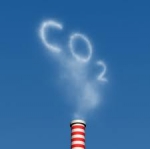 Results from the Durban climate talks show that businesses should start preparing in 2012 for a low-carbon economy, according to the former executive secretary of the U.N. Framework Convention on Climate Change.
Results from the Durban climate talks show that businesses should start preparing in 2012 for a low-carbon economy, according to the former executive secretary of the U.N. Framework Convention on Climate Change.
Yvo de Boer told the Guardian that Durban sent a strong message to business that the world’s governments are serious about tackling climate change. He said it is now apparent that market-based mechanisms such as carbon trading will continue and that there will be clear reporting guidelines on GHG emissions.
De Boer is now a special adviser on climate change at KPMG, but in 2009 he was one of the driving forces behind the Copenhagen climate summit, where countries made a voluntary commitment to cut emissions by 2020.
At Durban, negotiators agreed a second commitment period under the Kyoto Protocol, to run from 2013 through 2017, and bound themselves to agree in 2015 a deal to force them to cut emissions by 2020.
De Boer said a legally binding agreement would help business by providing greater certainty and a level playing field. He said companies will play a key role in combating global warming, including through the green climate fund, which is set to channel $100bn a year from rich to poor countries by 2020. The Durban outcomes confirmed that the fund will be able to help pay for private sector initiatives, he said.

Writing for Australia’s ABC, De Boer said that Durban resulted in an agreement to develop a common system for measuring, reporting and verifying emissions cuts, which was a key to progress on GHG reduction, and also key to private sector investment.
Paul Toyne, group head of sustainability at engineering and environmental consultancy WSP, said the changes for business would be “profound.” Writing in the Guardian, he said that new global rules on emissions would stimulate investment in low-carbon technology and encourage carbon offset markets.
But changing consumer behavior would be a significant obstacle, he said. Manufacturers and retailers must therefore “selectively edit out products” with a harmful environmental impact, he said, and continues to promote energy efficiency.
PricewaterhouseCoopers’ take on the Durban outcomes is here.
Source : environmentalleader.com

